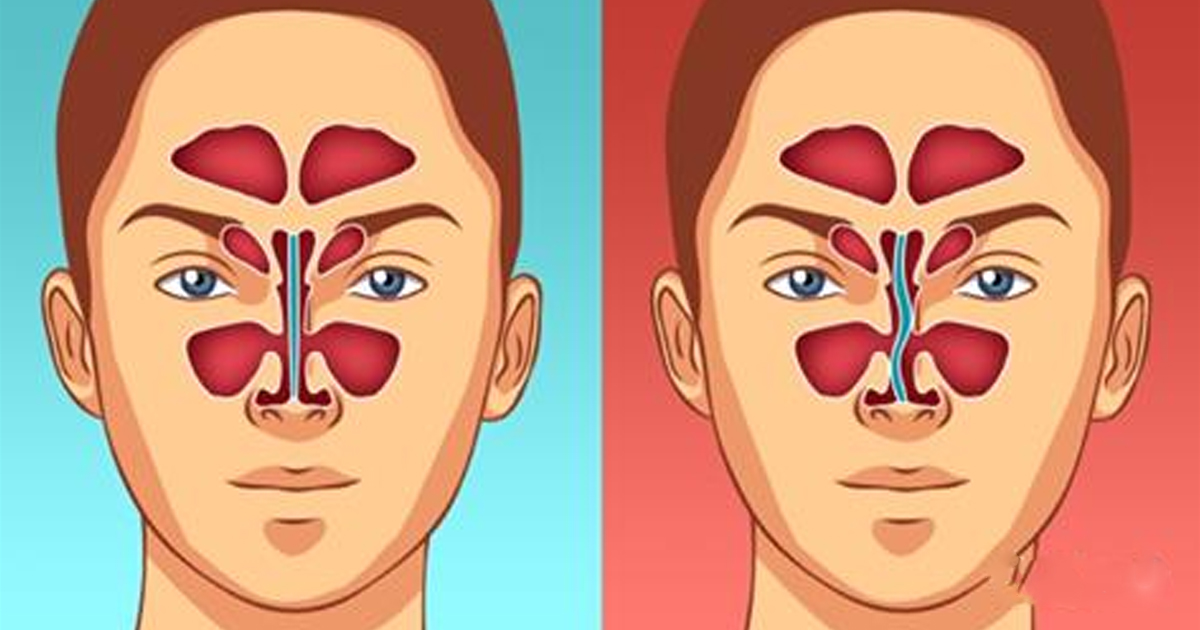Some health problems can prevent us from fully enjoying life, and we may not even know what is actually wrong. We often write these off to other causes, and the real reason for our symptoms remains unknown. A deviated septum is one of these problems.
Our nasal septum is a vertical partition that divides the nasal cavity into two parts. It occupies the space between the posterior bone wall and the nostrils. Ideally, the septum should be located directly and exactly in the middle of the nasal cavity, but in most people — according to statistics, approximately 80% — it is displaced, the result of which is that one nostril is smaller than the other. Most of the time this does not cause problems, but in some cases — for example, when the septum is deviated due to trauma or a birth defect — this can cause a number of difficulties.

Let’s take a look at six symptoms that indicate that a person could have a deviated septum.
1. Difficulty breathing through the nose
The most common sign of a deviated septum is the hindrance or blockage of the free flow of air through the nasal cavity. This can significantly hinder breathing through the nose. You may also notice that breathing through one of your nostrils is noticeably more difficult than the other.
2. Frequent inflammation of the sinuses

There are sinuses around your nose that produce mucus which then enters the nasal cavity. But a deviated septum can obstruct the flow of mucus, which contributes to the inflammation of the sinuses. This affliction is called sinusitis. It can cause you to feel pressure or pain in the nose, cheeks, between the eyes or in the forehead. In addition, sinusitis can cause headaches, fever, nasal congestion, coughing that usually worsens at night, bad breath, toothache and problems with perceiving both tastes and smells. However, although a deviated septum is a common cause of sinusitis, people with a normal septum can also suffer from these problems.
3. Nosebleeds
If you have a deviated septum, the airflow above it can dry out the nasal cavity and make you more susceptible to nosebleeds.
4. Headaches

If the deviated septum touches the sides of your nose, it can cause headaches.
5. Snoring
If the airways of the nasal cavity are blocked because of a deviated septum, additional effort is required to breathe through the nose. As a result, a vacuum forms in the throat, which contributes to the soft tissues of the throat touching, and the result is noisy breathing and snoring at night. According to otolaryngologists, this symptom is most often observed in infants and preschool children.
6. Difficulty sleeping
If the nasal cavity is blocked, you are forced to breathe through your mouth, which causes dryness in the mouth. For most people, this symptom is aggravated at night when they lie down. This can cause restlessness during sleep or even insomnia. If the septum is deviated only slightly, such symptoms may only be observed when the person has a cold.
A slight deviation of the nasal septum usually does not require medical intervention or treatment. In other cases, various nasal sprays, decongestants and antihistamines can help alleviate the symptoms. A doctor may also recommend that you have surgery if sinus inflammation and bleeding occur often.





